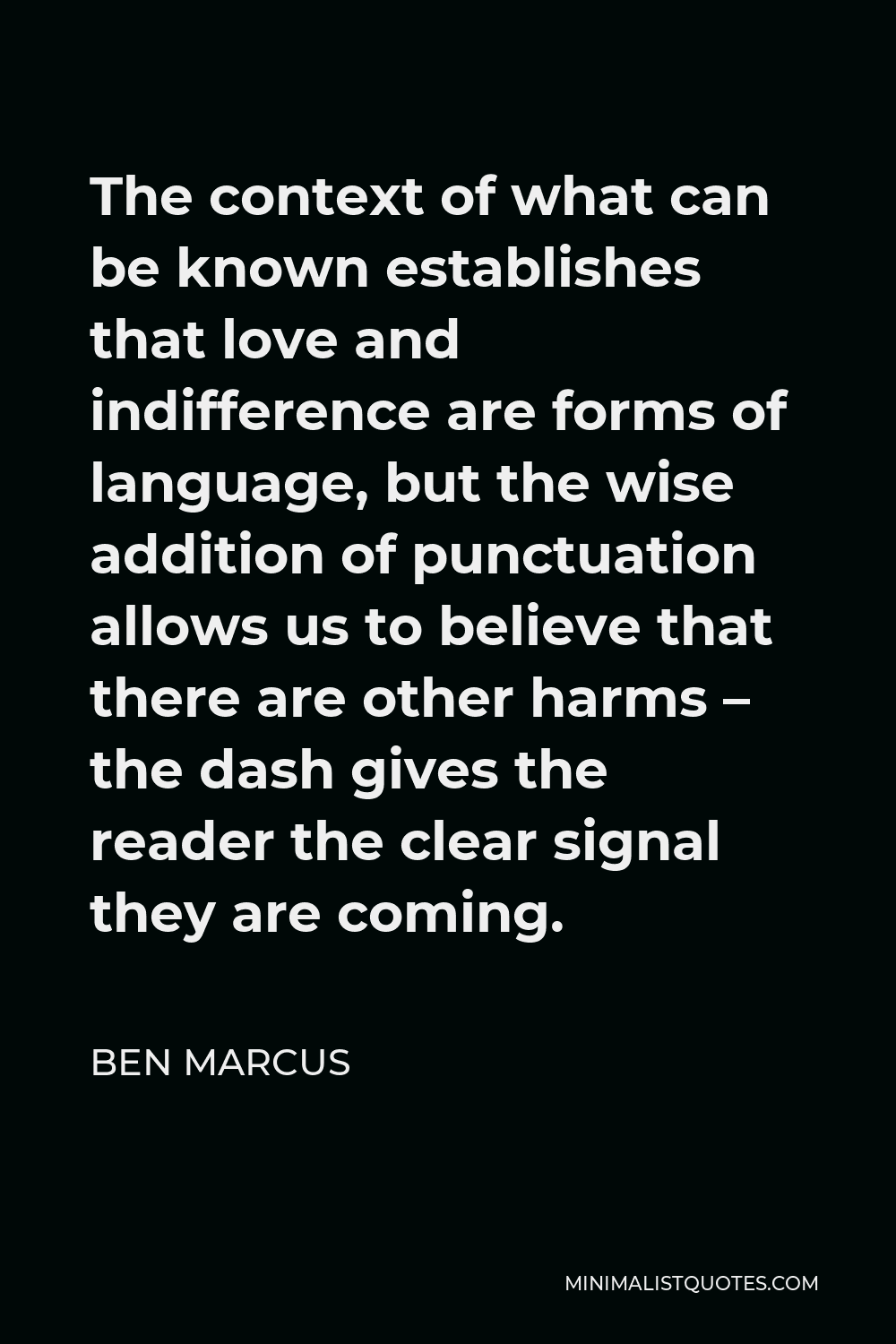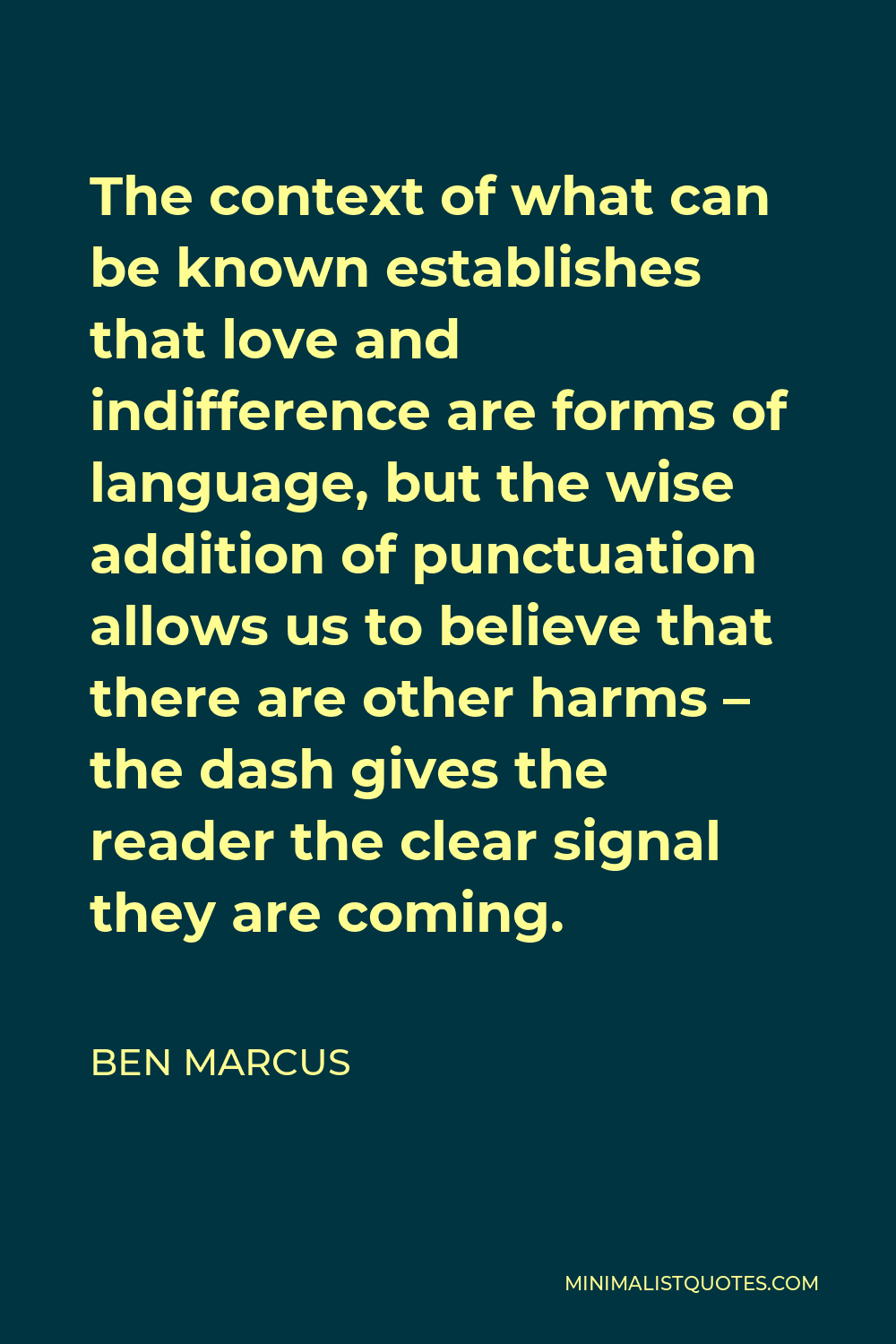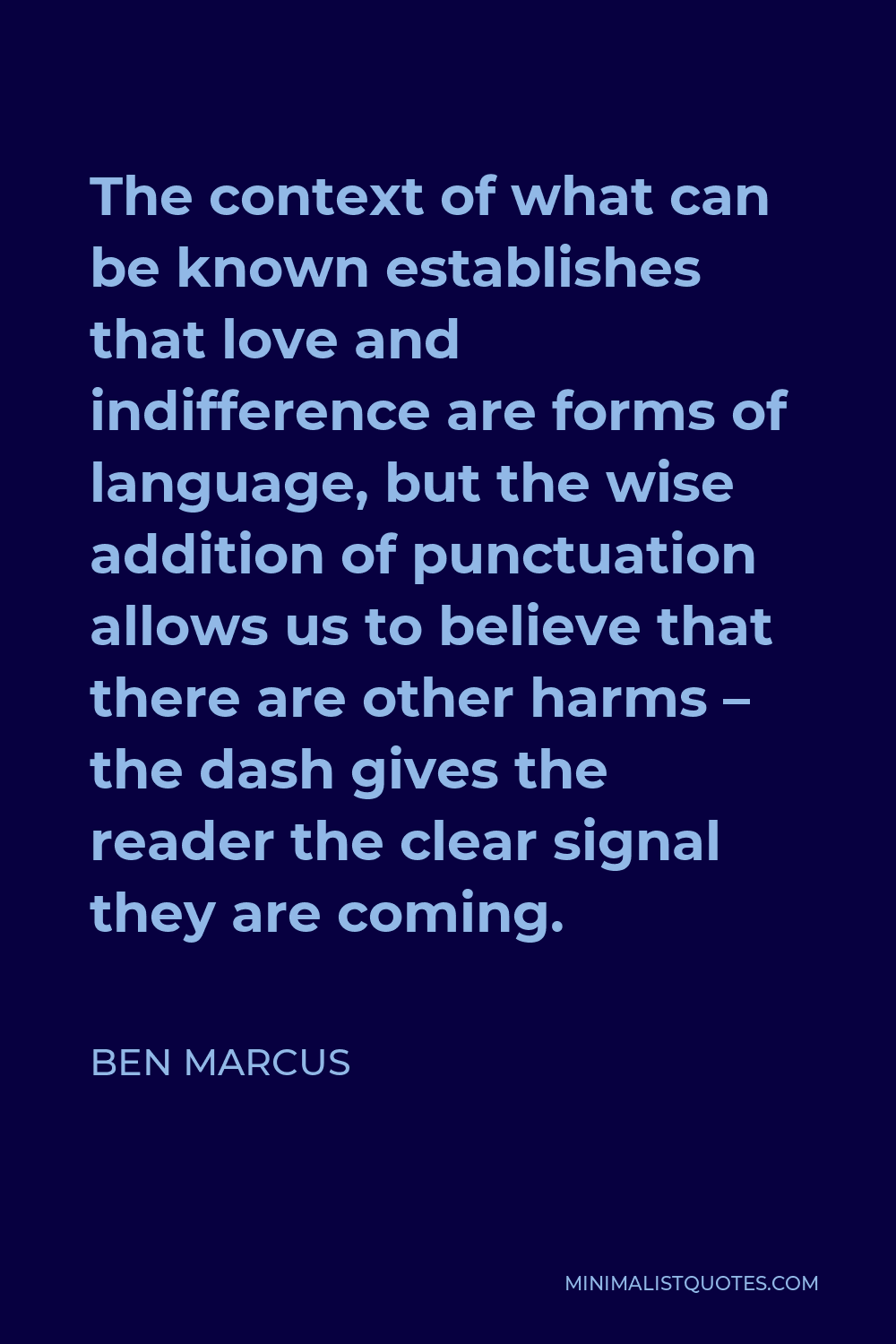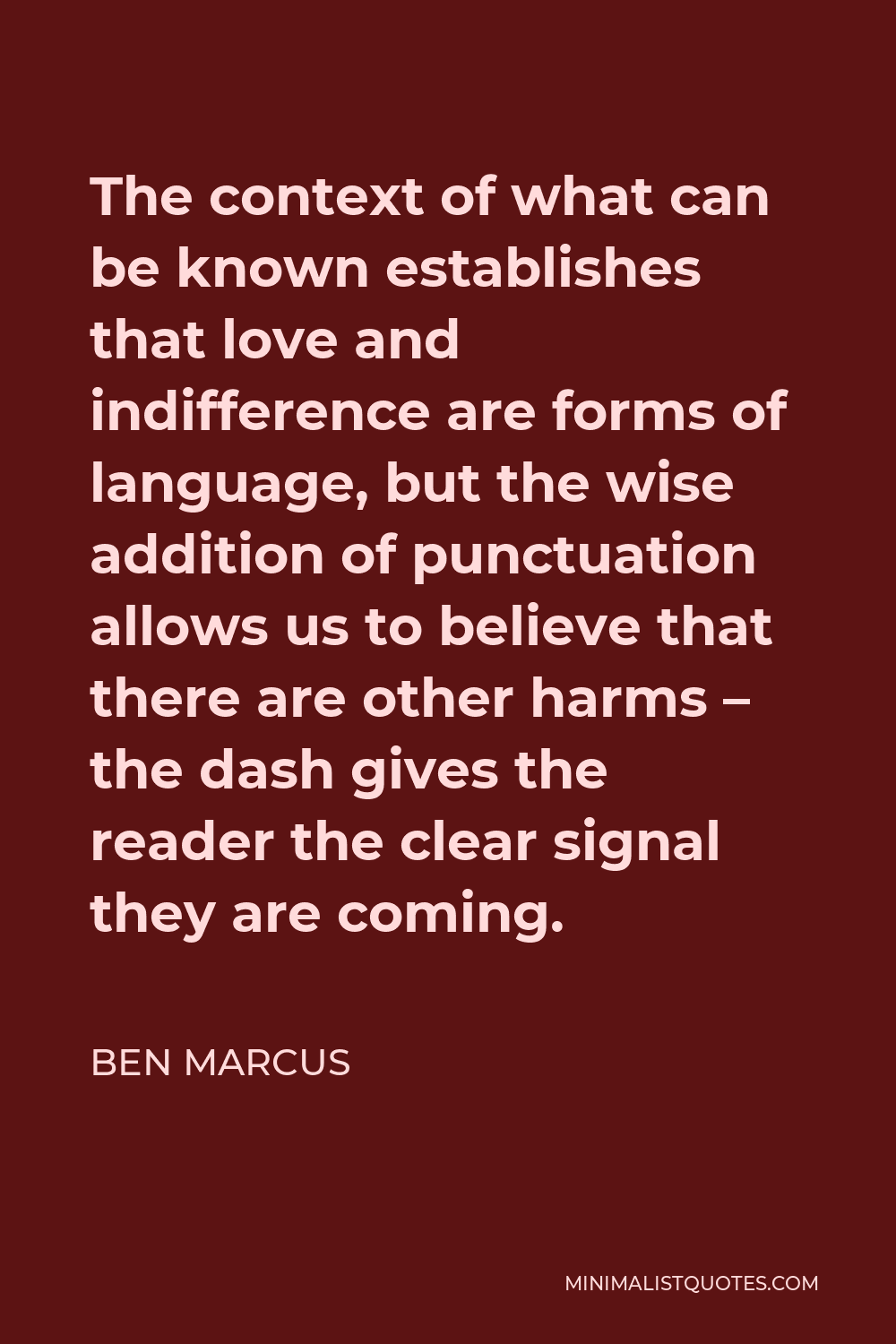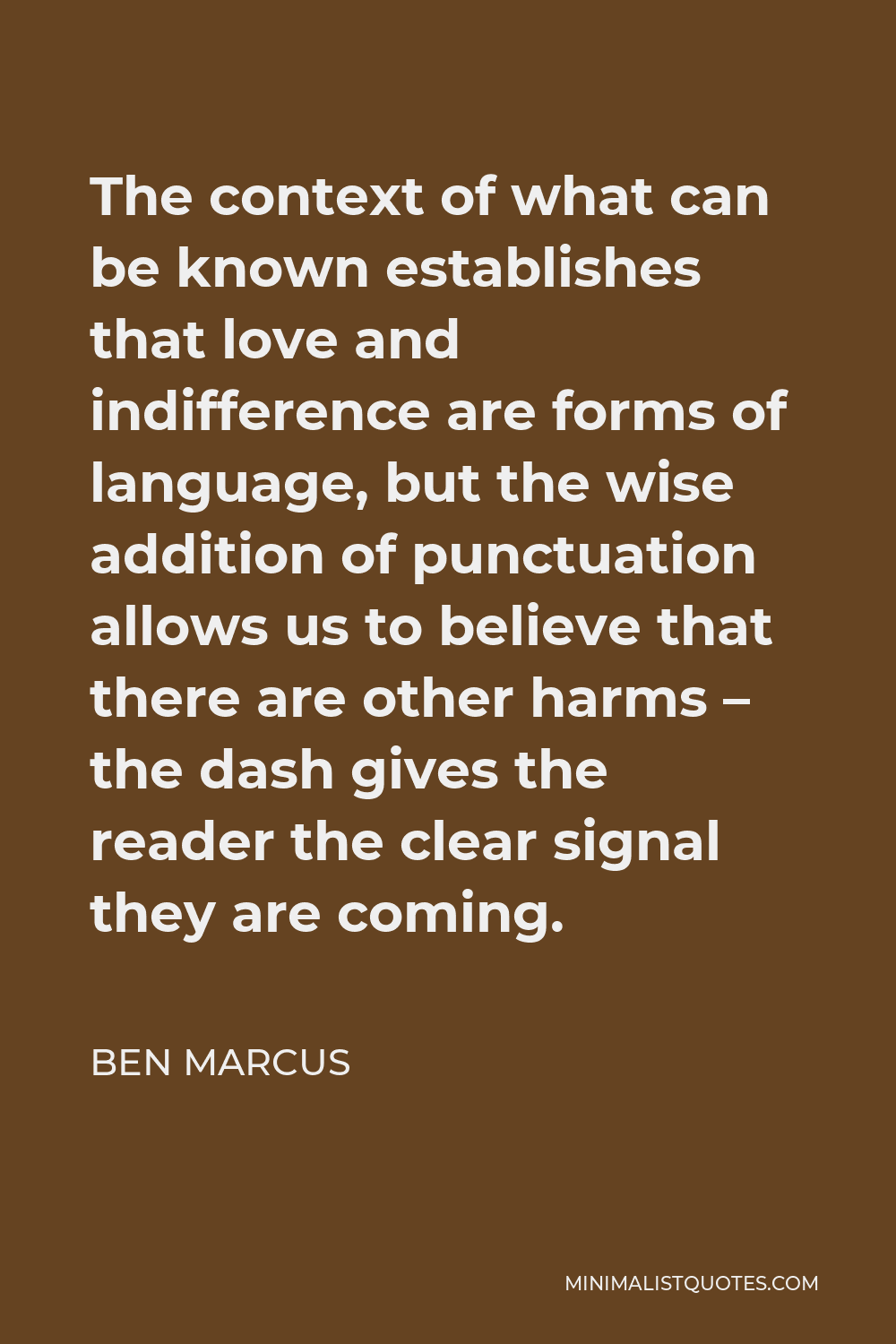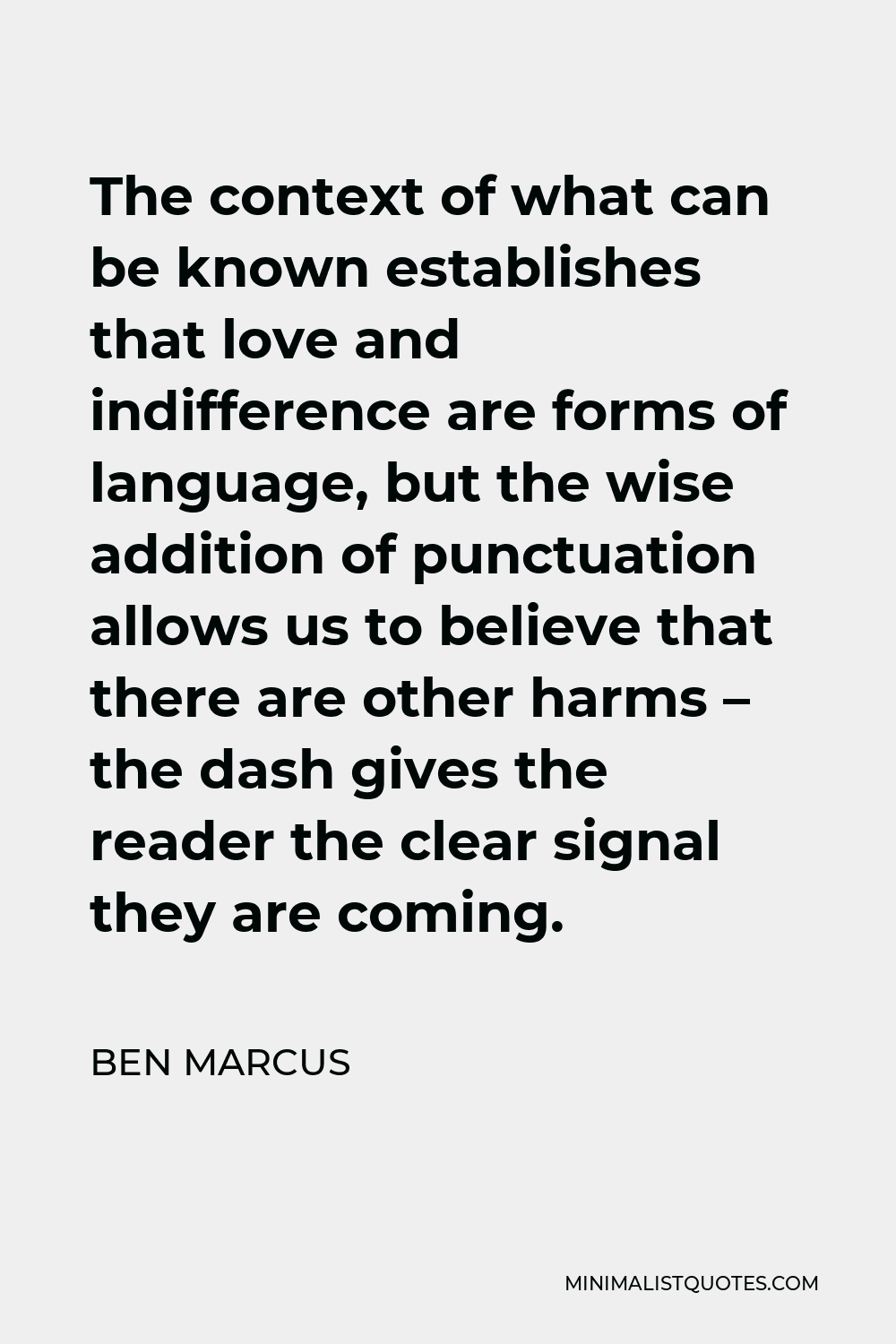I like big doses of grief when I read: Richard Yates, Flannery O’Connor, Kenzabaro Oe, Thomas Bernhard.
BEN MARCUSThe context of what can be known establishes that love and indifference are forms of language, but the wise addition of punctuation allows us to believe that there are other harms – the dash gives the reader the clear signal they are coming.
More Ben Marcus Quotes
-







-





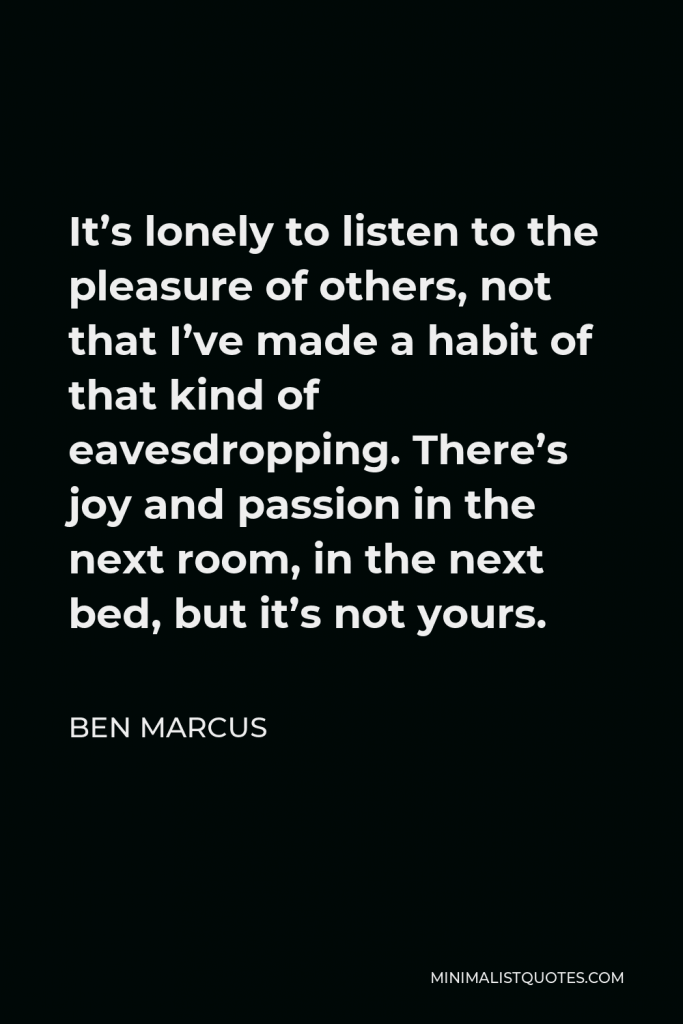

It’s lonely to listen to the pleasure of others, not that I’ve made a habit of that kind of eavesdropping. There’s joy and passion in the next room, in the next bed, but it’s not yours.
BEN MARCUS -







A misspelled word is probably an alias for some desperate call for aid, which is bound to fail.
BEN MARCUS -







Among other things, autoimmune disorders are an induction into a world of unstable information and no reliable expertise.
BEN MARCUS -





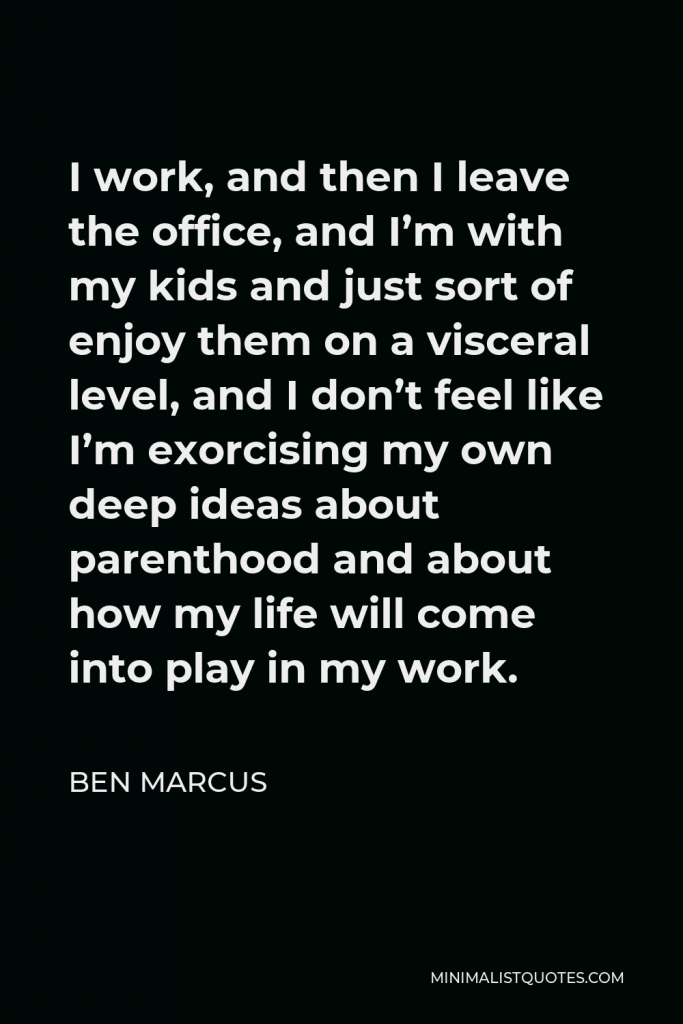

I work, and then I leave the office, and I’m with my kids and just sort of enjoy them on a visceral level, and I don’t feel like I’m exorcising my own deep ideas about parenthood and about how my life will come into play in my work.
BEN MARCUS -





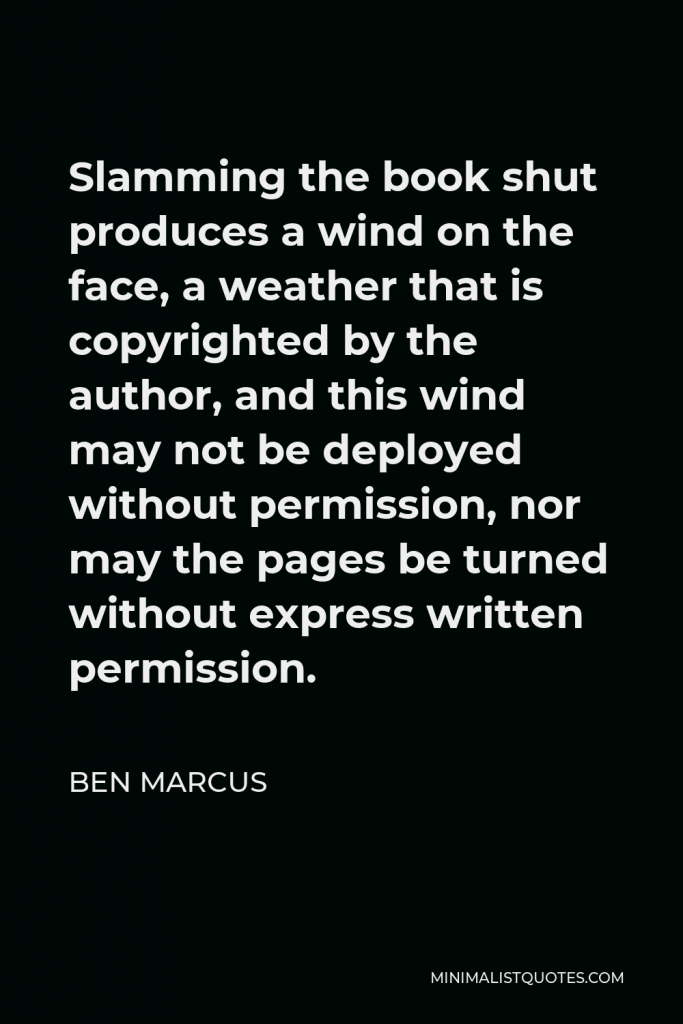

Slamming the book shut produces a wind on the face, a weather that is copyrighted by the author, and this wind may not be deployed without permission, nor may the pages be turned without express written permission.
BEN MARCUS -





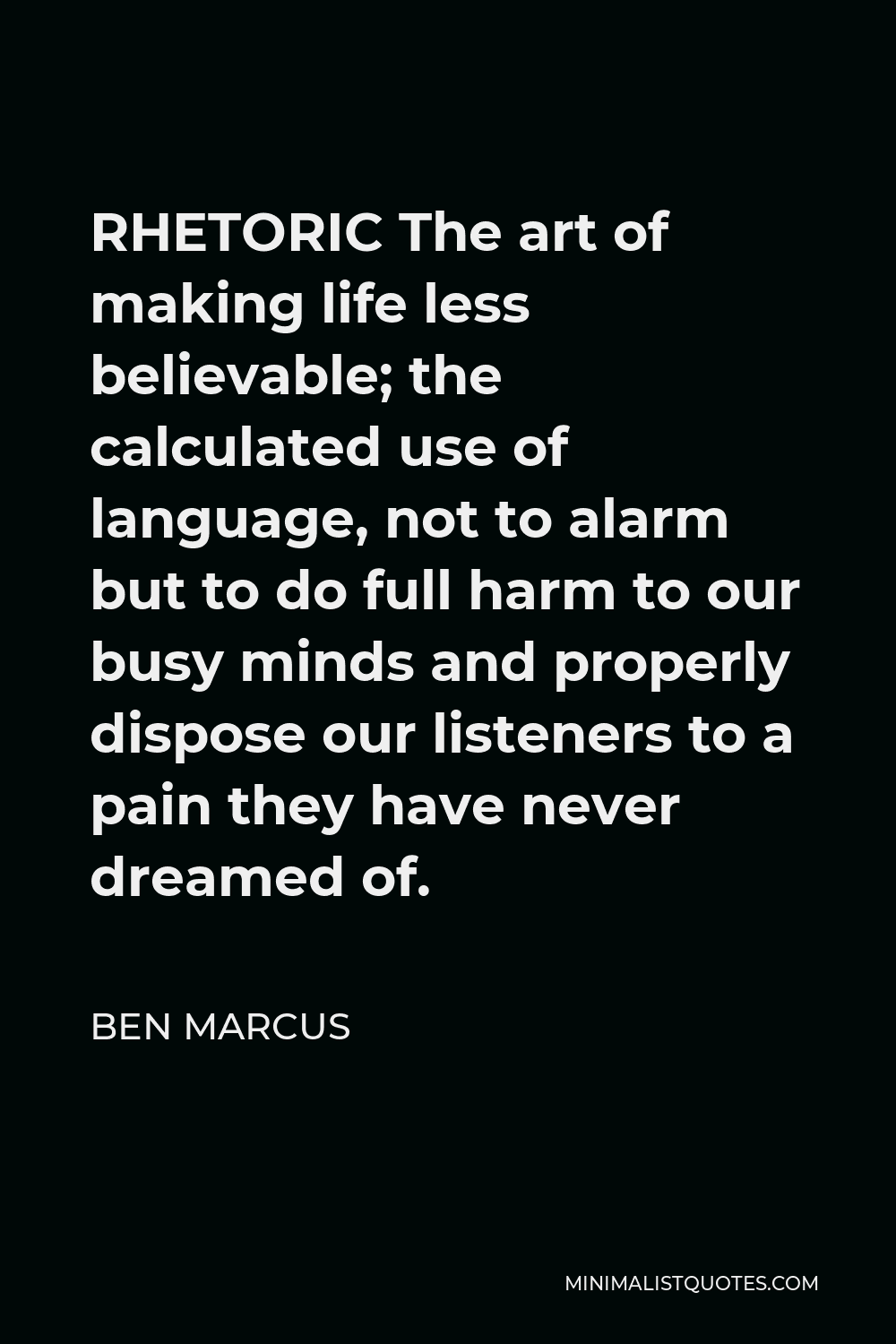
RHETORIC The art of making life less believable; the calculated use of language, not to alarm but to do full harm to our busy minds and properly dispose our listeners to a pain they have never dreamed of.
BEN MARCUS -







To me one of the amazing technologies of writing is the way it can listen in on thoughts. I don’t feel that that’s natural to other art forms in the same way.
BEN MARCUS -






Spelling is a way to make words safe, at least for now, until another technology appears to soften attacks launched from the mouth.
BEN MARCUS -






Eventually you stop paying attention to your own feelings when there’s nothing to be done about them.
BEN MARCUS -





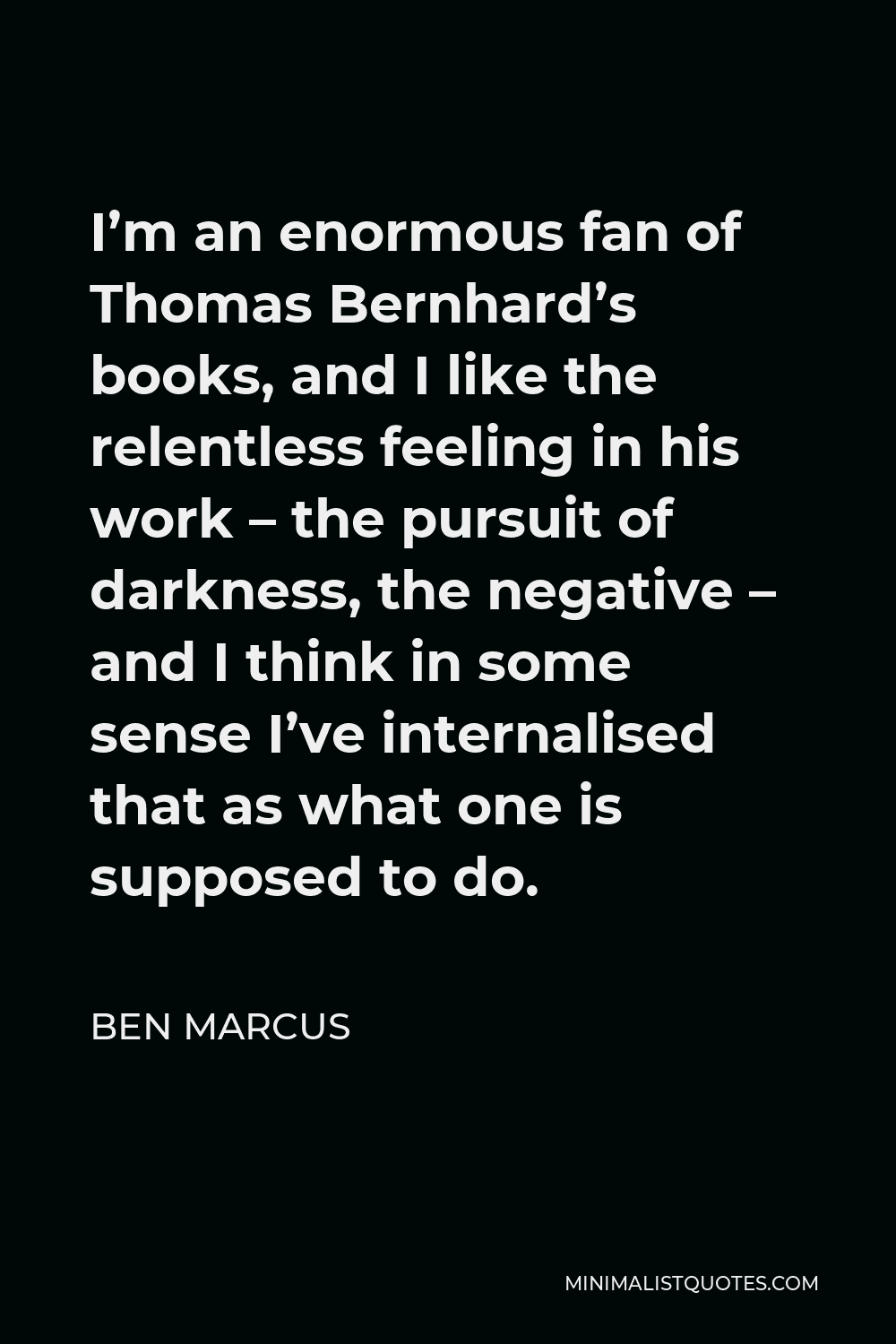
I’m an enormous fan of Thomas Bernhard’s books, and I like the relentless feeling in his work – the pursuit of darkness, the negative – and I think in some sense I’ve internalised that as what one is supposed to do.
BEN MARCUS -






My parents showed me by example that they could balance their work and family lives.
BEN MARCUS -






Teaching is all armchair. I learn about writing by writing and thinking about what I’ve written and throwing it away.
BEN MARCUS -






Without sound, celebration and grief look nearly the same.
BEN MARCUS -





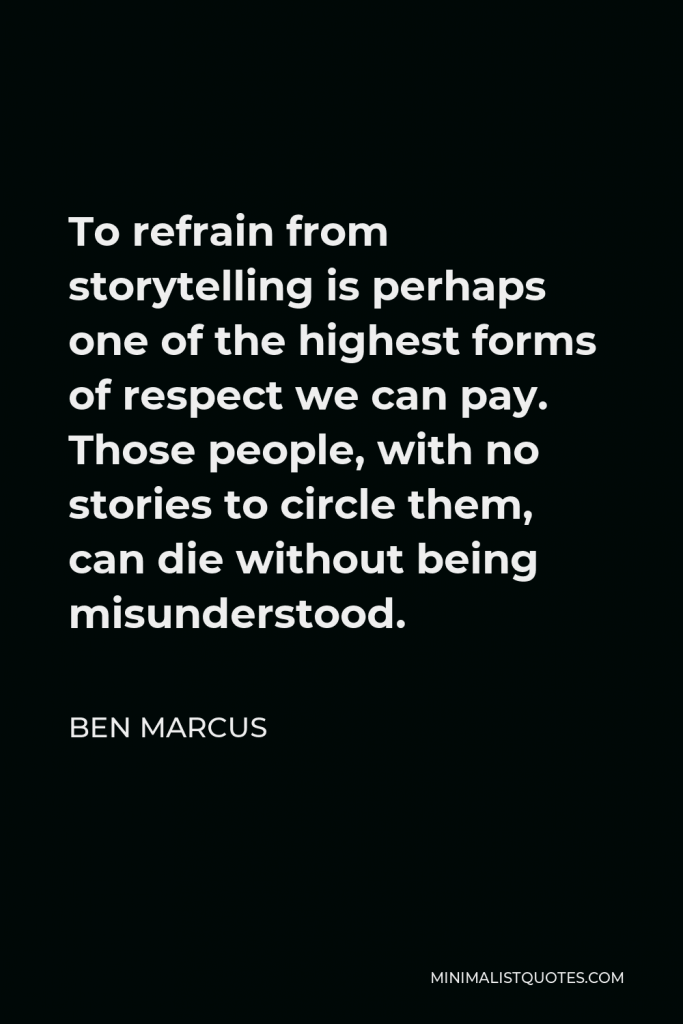

To refrain from storytelling is perhaps one of the highest forms of respect we can pay. Those people, with no stories to circle them, can die without being misunderstood.
BEN MARCUS -





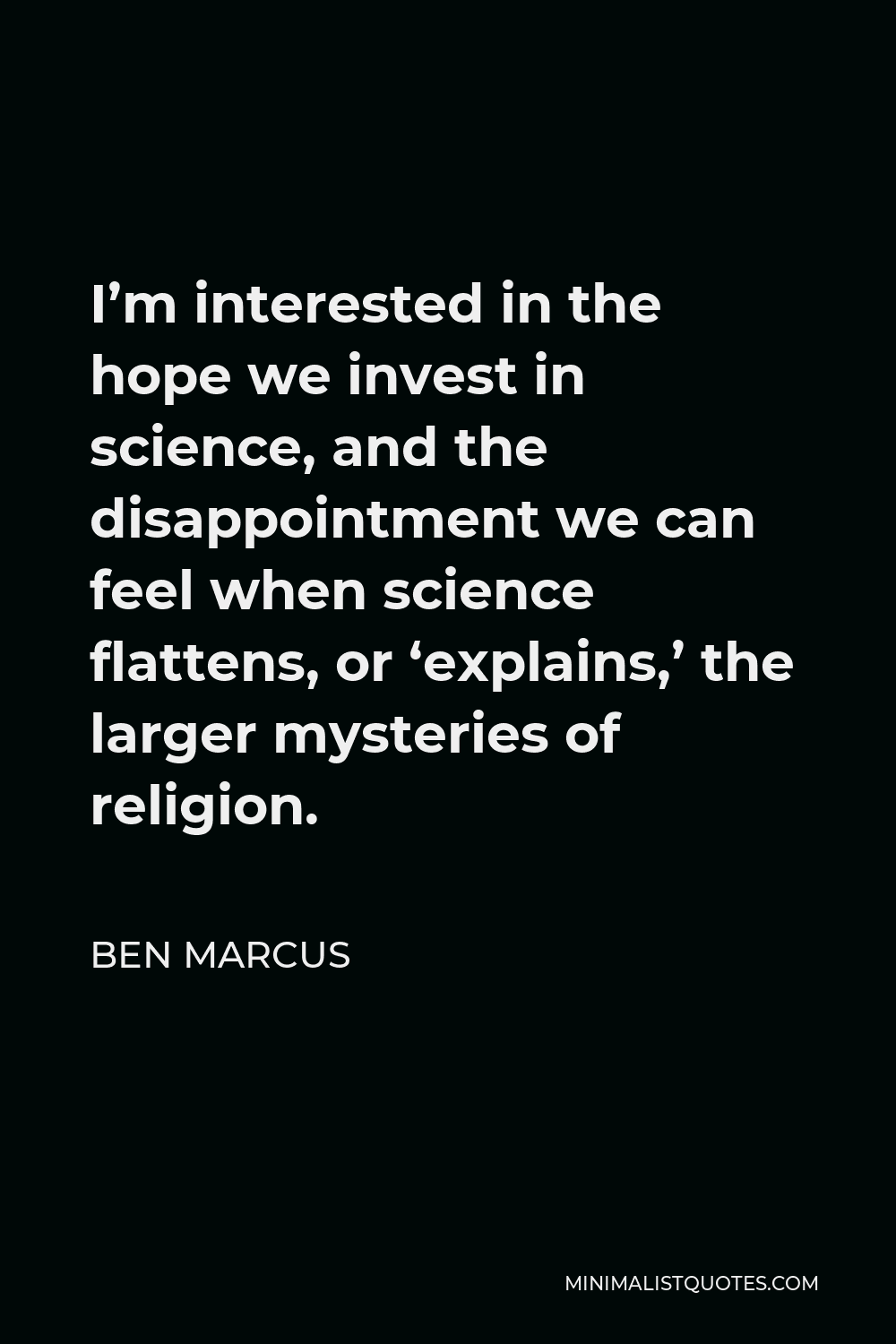
I’m interested in the hope we invest in science, and the disappointment we can feel when science flattens, or ‘explains,’ the larger mysteries of religion.
BEN MARCUS
